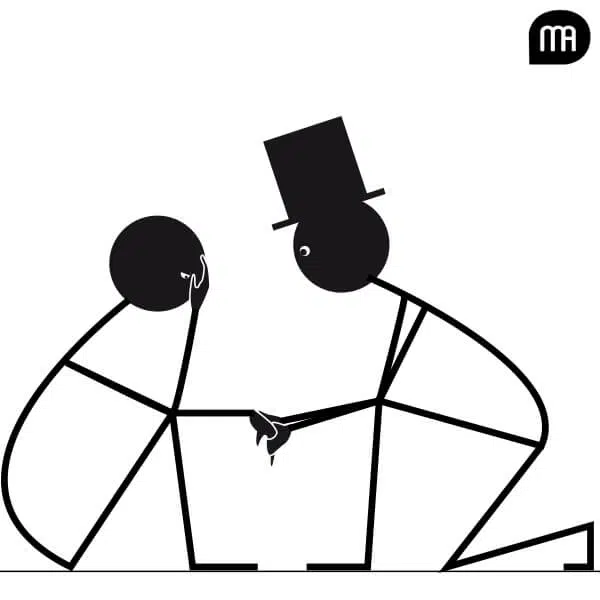 In the crisis we are going through, consolation is of great importance. It aims not only to relieve affliction, bring comfort, reassure, soothe, and alleviate sorrow, but also to give moral strength (1). It includes the idea of compensation. Consolation also has a spiritual meaning. In the Christian religion, it designates the “hope of salvation, of the coming of the Messiah” (2): “Biblical consolation is not made up of patience alone or of resignation, it is positive, active, due to an intervention of divine power which is accomplished in human weakness” (3).
In the crisis we are going through, consolation is of great importance. It aims not only to relieve affliction, bring comfort, reassure, soothe, and alleviate sorrow, but also to give moral strength (1). It includes the idea of compensation. Consolation also has a spiritual meaning. In the Christian religion, it designates the “hope of salvation, of the coming of the Messiah” (2): “Biblical consolation is not made up of patience alone or of resignation, it is positive, active, due to an intervention of divine power which is accomplished in human weakness” (3).
The idea that consolation is “that which, whether of human or divine origin, brings moral, sometimes material, physical and sensitive comfort” (4) is found in some recent texts on the coronavirus outbreak.
Two testimonies
Here is the testimony of consolation of a human origin. It is found in an article entitled “The real heroes among us,” published on the website of the Pediatric Infectious Diseases Society. It explains the strong commitment of a female physician:
“[She] is a physician at a major hospital in our area. Her job is to help prevent and treat infections, both at the hospital and in our broader community.
Since the crisis began, she has been working 16 to 18 hours a day. She has arranged coronavirus tests for hospital staff and others. She has advised doctors — at her institution, and elsewhere — about how to care for infected patients, and how to see that they do not infect others. And she has worked with state and local government officials to control the outbreak.
That means talking or texting on the phone, from dawn through to the wee hours of the night. It means listening to all of the requests that come in, and carefully addressing each one. It means consoling people who are panicked, and getting people who are too casual to step it up.” (5)
Now here is the reference to consolation of a divine origin. It is found in an article published on March 15, 2020 in the British daily newspaper The Telegraph (6). Addressing the philosophical and spiritual questions raised by the crisis, its author, Simon Heffer, discusses the weak presence of the Archbishop of Canterbury in the public space:
“[The] crisis takes us into philosophical questions about the nature of society and our place in it that go beyond the training or experience of a politician. They border on spiritual matters. The Prime Minister would presumably be the first to admit he lacks the authority required of a divine spokesman. When faced with matters of life and death, especially on this potential scale, our culture – even if we are not religious ourselves – demands something more elevated. And that brings us to the Archbishop of Canterbury.
[…]
Perhaps [the Archbishop of Canterbury]’s inability to lead his flock in this crisis is the ultimate admission of the triumph of secularism, a creed more suited to an era when man believed he controlled the world: in which case he should go. It would be an ironic turn if it were left to the overtly godless – of which I am one – to form a new philosophy to console our people in a crisis whose most terrible impact is probably yet to come.”
This author’s position was objected to by Joseph Pearce on The Catholic World Report site. There he states that “much more interesting than Mr. Heffer’s stating of the obvious about the Anglican Church is his naïve suggestion that the ‘overtly godless’ can come up with a new philosophy capable of consoling people in a crisis, thereby replacing the need for religion or God” (7).
Sources of consolation
These references to consolation evoke two ways of understanding it: either it refers to the activation of natural feelings of kindness and compassion, or to a mechanism such as sympathy (in the sense, for example, in which Adam Smith understood it), or it is based on a background philosophy associated with a vision of existence, more broadly a philosophy of life. Let us look at this second vision of consolation, which both Heffer and Pearce evoked. The expression “philosophy of life” is not chosen at random. It corresponds to the title of one of the new introductory lectures on psycho-analysis that Sigmund Freud gave between 1915 and 1917. Here is what he said at that particular conference:
“By Weltanschauung, then, I mean an intellectual construction, which gives a unified solution of all the problems of our existence in virtue of a comprehensive hypothesis, a construction, therefore, in which no question is left open and in which everything in which we are interested finds a place. It is easy to see that the possession of such a Weltanschauung is one of the ideal wishes of mankind. When one believes in such a thing, one feels secure in life, one knows what one ought to strive after, and how one ought to organise one’s emotions and interests to the best purpose.” (8)
“One feels secure in life” (Man sich im Leben sicher fühlen). This is one of the essential functions of this philosophy of life. It meets a need for security: “the qualities which, as we have shown, are expected of a Weltanschauung have a purely emotional basis,” Freud writes. Now, if there is one force that is the ultimate answer to this need for security, it is religion. Neither science nor philosophy can match it:
“In so far as religion brushes away men’s fear of the dangers and vicissitudes of life, in so far as it assures them of a happy ending, and comforts them in their misfortunes, science cannot compete with it.”
The need for consolation
Freud is known to trace the need for security and consolation back to childhood, the time when the child is protected by the father. In his beautiful words, the adult, “in relation to the external world he is still a child.” But Freud explains that, for the human being coming out of childhood, the “Father” replaces the “father.” In The future of an illusion, he thus affirms the transposition of the link between the father of childhood and the Father, the god who created the world:
“[The] terrifying impression of helplessness in childhood aroused the need for protection-for protection through love which was provided by the father; and the recognition that this helplessness lasts throughout life made it necessary to cling to the existence of a father, but this time a more powerful one. Thus the benevolent rule of a divine Providence allays our fear of the dangers of life; the establishment of a moral world-order ensures the fulfilment of the demands of justice, which have so often remained unfulfilled in human civilization; and the prolongation of earthly existence in a future life provides the local and temporal framework in which these wish-fulfilments shall take place.”(9)
Freud defends the idea that “these things are all illusions.” This is an ancient idea, which was expressed in a striking form in a philosophical dialogue of Cicero, “On the contempt of death,” his first Tusculan Disputation:
– The opinions of others do indeed bring us hope; if it is any pleasure to you to think that souls, after they leave the body, may go to heaven as to a permanent home.
– I have great pleasure in that thought, and it is what I most desire; and even if it should not be so, I should still be very willing to believe it. (11)
Paradoxically, this a priori irrational statement (an exemplification of wishful thinking, perhaps also of self-deception) reinforces the idea that consolation has an authentic moral value. Freud stated this explicitly in relation to religious ideas, of which consolation is a manifestation:
“Such as they are, those ideas-ideas which are religious in the widest sense-are prized as the most precious possession of civilization, as the most precious thing (Wertvollste) it has to offer its participants. It is far more highly prized than all the devices for winning treasures from the earth or providing men with sustenance or preventing their illnesses, and so forth.” (12)
It can be argued that the moral value of consolation is not only transferred to it by the value accorded to religious ideas but would also come from the natural feelings we have mentioned. Thus, one could argue, in the context of religious naturalism, that religious belief would activate, reinforce or give meaning to these feelings. In the second part devoted to the moral value of consolation, we will not continue in this direction. Rather, we will look at its moral and spiritual content.
Alain Anquetil
References
(1) I relate here to the definitions (in French) of the CNRTL, the Dictionnaire de la langue française Le Robert, and the Lexique latin-français (E. Sommer, Hachette, 1870).
(2) Source (in French): CNRTL.
(3) Source (in French): Dictionnaire Biblique Westphal, see levangile.com.
(4) Source (in French): CNRTL. Je mets les italiques.
(5) Pediatric Infectious Diseases Society (NB: no date is indicated). (6) S. Heffer, “A nation confronting its own mortality needs spiritual leadership. So where is Justin Welby?,” The Telegraph, 15 March 2020.
(7) J. Pearce, “God preserve us from godless philanthropy,” The Catholic World Report, 19 March 2020.
(8) S. Freud, Neue Folge der Vorlesungen zur Einführung in die Psychoanalyse, Gesammelte Werke (XV), S. Fischer Verlag Gmbh, 1933, translated by W.J.H. Sprott, New Introductory Lectures on Psycho-analysis, New York, Carlton House, 1933.
(9) S. Freud, Die Zukunft einer Illusion, S. Fischer Verlag Gmbh, 1927, translated by J. Strachey, The future of an illusion, New York, W.W. Norton, 1961.
(11) Cicero, “On the contempt of death,” in Tusculan Disputations, translated by C. D. Yonge, New York, Harper & Brothers, Publishers, 1877.
(12) S. Freud, The future of an illusion, op. cit. [cite]



